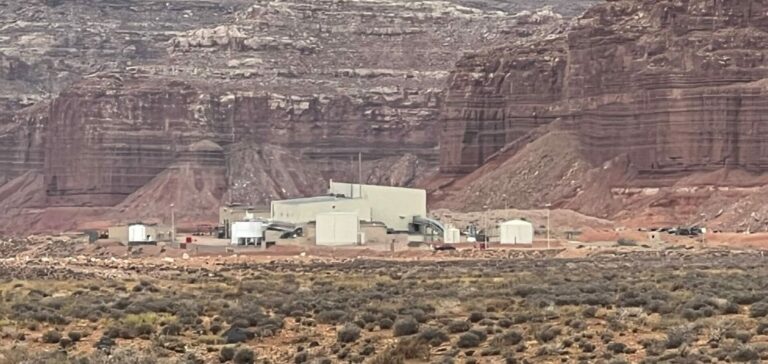The federal government of the United States has approved the opening of the Velvet-Wood mine in San Juan County, Utah. The project, led by Canadian company Anfield Energy Inc., focuses on the extraction of uranium and vanadium. It is the first permit granted under a new 14-day expedited environmental review procedure introduced in the context of the national energy emergency declared by President Donald J. Trump.
A response to strategic dependency
According to the Bureau of Land Management (BLM), which conducted the final environmental assessment, the operations will result in only three acres of surface disturbance. The main activity will take place underground, relying on previously identified deposits at the Velvet site and the nearby Wood deposit. The stated goal is to reactivate historic infrastructure while minimising land impact.
The United States heavily depends on imports for these two strategic minerals. In 2023, 99% of the uranium used by U.S. civilian nuclear power plants came from abroad, notably Russia, Kazakhstan, and Uzbekistan. In 2024, nearly half of the vanadium consumed in the U.S. was imported, mainly from China, Russia, South Africa, and Brazil.
Critical industrial and military uses
Uranium is essential for electricity production in nuclear power plants, medical applications, and propulsion of U.S. Navy submarines and aircraft carriers. Vanadium, for its part, is used to strengthen steel and is found in titanium alloys used in both commercial and military aviation.
Doug Burgum, U.S. Secretary of the Interior, stated that this approval marks “a turning point in how we secure America’s mineral future.” The Department noted that the procedure aims to reduce dependence on foreign powers by accelerating critical mineral projects.
Additional infrastructure planned
Anfield Energy also plans to restart the Shootaring Canyon uranium mill, located south of Hanksville, in the same state. This facility, one of only three licensed uranium concentrate mills in the United States, would produce uranium concentrate directly from the extracted ore, thus reducing the need to import processed material.
The Bureau of Land Management oversees the extraction of mineral resources on federally managed public lands, including strategic minerals used in data centres and defence applications. The agency issues permits, monitors land use, and manages the environmental processes associated with traditional and critical mining operations.






















